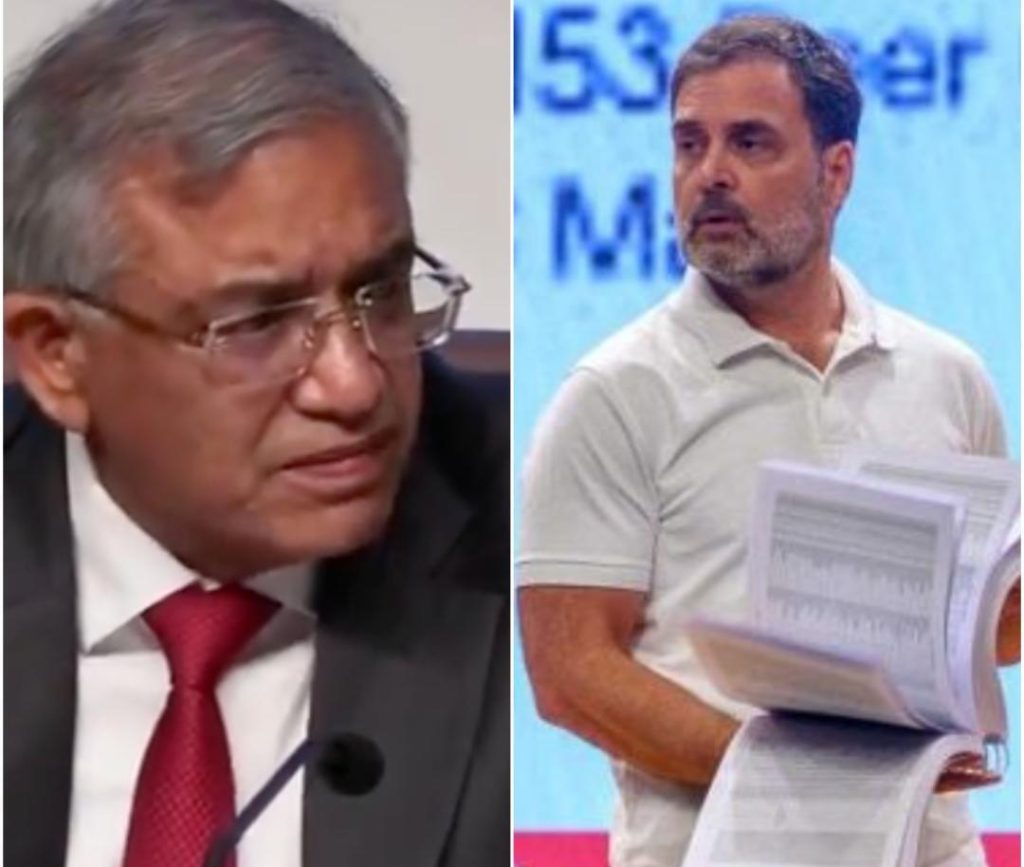
Vote Chori’ Phrase an Insult; Should We Share CCTV Footage of Mothers & Sisters Voting?: EC
The ongoing election season in India has been marked by controversy and heated rhetoric. One phrase that has gained significant attention in recent times is ‘vote chori’, which roughly translates to ‘voting theft’. Congress leader Rahul Gandhi has been using this term to claim that elections are being rigged, and the opposition parties are resorting to underhanded tactics to win.
However, the Election Commission of India (EC) has taken umbrage with this phrase, labelling it “an insult to the Constitution”. In a recent statement, Chief Election Commissioner (CEC) Gyanesh Kumar criticized the term, saying it undermines the sanctity of the democratic process.
“We are committed to ensuring free and fair elections, and phrases like ‘vote chori’ undermine the very fabric of our democracy,” Kumar said. “Such language is an insult to the Constitution and the democratic process.”
The CEC’s statement comes at a time when the EC is under intense scrutiny for its handling of the elections. With the use of technology becoming increasingly prevalent in the polling process, there have been demands from various quarters to release surveillance footage from polling booths to allay concerns about rigging.
However, the EC has refused to oblige, citing concerns about voter privacy. In a recent interview, Kumar asked a pointed question: “Should the Election Commission share the CCTV videos of any voter, including their mothers, daughters-in-law?”
The EC’s stance is rooted in the fact that the surveillance footage is meant to deter and investigate electoral malpractices, not to be used as a tool for political rhetoric or to embarrass individual voters. By releasing the footage, the EC would be compromising the privacy and security of millions of voters, many of whom may not want their political affiliations or voting decisions to be made public.
Moreover, the EC’s concerns about voter privacy are not unfounded. In a democracy, voters have the right to exercise their franchise without fear of intimidation or retribution. Releasing surveillance footage could potentially expose voters to harassment, threats, or even physical harm.
It is also worth noting that the EC has implemented several measures to ensure transparency and accountability in the electoral process. The use of Voter Verified Paper Audit Trail (VVPAT) machines, for instance, allows voters to verify that their votes have been recorded correctly. The EC also conducts regular audits and random checking of votes to identify and address any discrepancies.
In light of these measures, it is essential that we refrain from using inflammatory language like ‘vote chori’ that can undermine public confidence in the electoral process. Instead, we should focus on promoting a culture of transparency, accountability, and respect for the democratic process.
The EC’s stance on releasing surveillance footage is also a reminder that our democratic institutions are committed to protecting the rights and privacy of citizens. As we navigate the complexities of modern democracy, it is crucial that we prioritize these values and work towards building a system that is fair, transparent, and accountable to all.






